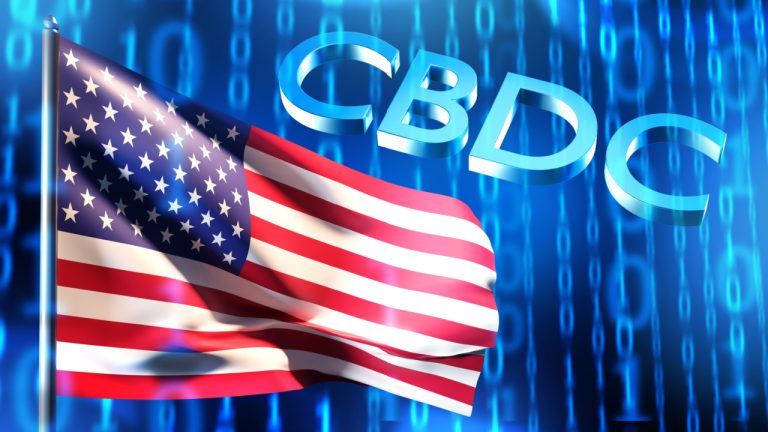Atlantic Council: Belief That Dollar Does Not Need to Innovate Is a ‘Miscalculation’
Publikováno: 29.1.2024
 The U.S. Federal Reserve is lagging behind its peers like the Bank of China in terms of the resources and manpower dedicated to developing a central bank digital currency. According to a blog post, the belief that the dollar does not need to innovate is a miscalculation. An expert argued that it does not make […]
The U.S. Federal Reserve is lagging behind its peers like the Bank of China in terms of the resources and manpower dedicated to developing a central bank digital currency. According to a blog post, the belief that the dollar does not need to innovate is a miscalculation. An expert argued that it does not make […]

The U.S. Federal Reserve is lagging behind its peers like the Bank of China in terms of the resources and manpower dedicated to developing a central bank digital currency. According to a blog post, the belief that the dollar does not need to innovate is a miscalculation. An expert argued that it does not make sense to compare the U.S. Federal Reserve to central banks in centralized countries.
The Opposition to a CBDC
According to a new blog post by the Atlantic Council, a non-partisan American think tank, the U.S. Federal Reserve lags behind many of its peers when it comes to developing a central bank digital currency (CBDC). To support this assertion, the post highlights the amount of resources, including personnel, that the Federal Reserve has dedicated towards CBDC development and innovation.
For context, the authors of the blog post, Josh Lipsky and Ananya Kumar, point to the Bank of China’s more than 300 people working specifically on the country’s CBDC. In contrast, the Federal Reserve has a team of twenty individuals who are thought to be working on a digital alternative to the dollar.
Furthermore, the Federal Reserve’s Fednow, its long-awaited interbank settlement system, has taken longer to get off the ground than comparable systems in Europe. In addition, the take-up of Fednow has been limited in the early days, the authors added. While many factors are thought to be behind the Federal Reserve’s lagging, a general belief that the dollar does not need to innovate explains why officials and politicians are against the CBDC.
“Typically their [Fed officicals] answers include not seeing a strong use case at present and wariness about unknown consequences of changing the current system,” the authors wrote. “It makes sense to not want to disrupt the currency that underpins the global economy. But the apparent belief of some inside the Fed and on Capitol Hill is that the dollar does not need to innovate. That is a miscalculation.”
The CBDC and U.S. Elections
Besides Fed officials and Capitol Hill politicians, former U.S. President and aspiring presidential election candidate Donald Trump has also expressed his opposition to a CBDC. As recently reported by Bitcoin.com News, Trump has vowed to block its creation if he is reelected.
However, despite the strong opposition to the CBDC, the Atlantic Council blog post asserts that payment innovation does not have to wait until after the November election because “a year is an eternity in technology.”
Meanwhile, Franklin Knoll, the expert/Lead at the Federal Reserve Bank of Kansas City, has questioned the Atlantic Council blog post’s idea of comparing the U.S. Federal Reserve with central banks in centralized countries like Japan or the U.K.
“Central banks in these countries have more independence and agility, allowing them to move faster than public sentiment or even their government’s views on monetary matters. Remember, the Fed is a largely decentralized collection of public/private banks spread across a continent,” Noll asserted.
Regarding U.S. politicians’ perceived opposition to the CBDC, Noll suggested that the blog post ignores the impact of U.S. community banks’ resistance to the digital currency.
Do you believe that the U.S. does not need a CBDC? Let us know what you think in the comments section below.